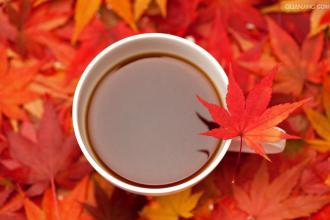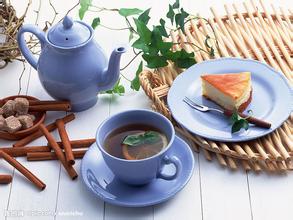Introduction to the characteristics of El Salvador Himalayan coffee flavor varieties with smooth entrance
The civil war in the 1980s made many coffee farmers in war zones unwilling to spend agricultural fertilizer on coffee plantations, resulting in the fact of "organic planting". After the war, coffee plantations with organic cultivation were set up with the assistance of the government, and many of them obtained the Eco-ok certification of the Rainforest Alliance (Rain forest-Alliance). At present, 2000 hectares of coffee plantations are organically certified, and another 2000 hectares are in the process of being certified (it takes three years from application to obtaining organic certification).
[planting profile]:
In the 19th century, coffee in El Salvador was an important cash crop, and the government legislated to collect taxes and encourage planting and export. although coffee farmers in El Salvador could not get technical or financial assistance, they were in the growth of production per hectare, it is quite excellent among many coffee-producing countries! The output value of coffee is like a locomotive, which contributes a lot to the basic transportation construction, the development of light industry and even the progress of mechanization.
The country has 10 per cent forest cover, of which more than 80 per cent is natural shaded woodland, which is ideal for the planting of coffee trees (shade grown coffee), which is very important for the Central American ecological corridor (Central American Biological Corridor). But in 1970, there was a serious coffee leaf rust spot (coffee leaf rust disease). In order to expose coffee trees to the sun, many shade trees were cut down! This has caused a lot of environmental damage! But the civil war has also brought about a turnaround for the environment.
El Salvador's coffee accounts for 40% of the country's exports, and it is usually picked in November, December and January-March of the following year. The export of raw beans lasts almost all year round. Coffee is produced in seven of the country's 14 provinces, with the largest number in the northwestern provinces of chalatenango and santa ana. El Salvador produces 100% Arabica coffee, 68% of which is bourbon, which usually grows at an altitude of 1062 Mel 1972 meters. On the other hand, El Salvador has a unique mountain, river and plateau, which provides a suitable environment for the growth of bourbon coffee. At the same time, El Salvador's suitable temperature, abundant precipitation and fertile soil are also indispensable natural conditions for breeding high-quality coffee beans. Like other typical island beans, Salvadoran coffee is balanced, soft and good in texture.
The first to drink in El Salvador is washed beans, medium and shallow baking, smooth entrance, sour and sweet mellow thickness are very regular, and do not have too prominent flavor characteristics, so they do not leave much impression. But the flavor of tanning El Salvador becomes very recognizable and amazing. After grinding, the dry aroma gives off a pleasant tropical fruit aroma, followed by steaming, extraction, and until the end, a steady stream of jackfruit aroma. As soon as the extraction is over, I can't wait to take a sip. Strawberries, brown sugar, faint spices, and then two more sips, the creamy taste can be described with an advertising phrase-"silky at the moment." . This country is a small coffee-producing country, which is very suitable for honey treatment and solarization. On the whole, honey treatment and sun treatment have also given a new soul to El Salvador. The long-lasting taste is rich, sweet and sour, chocolate, unique tropical fruit notes, let people remember deeply.
Finally, for the way this coffee is made, I personally recommend hand brewing. Hand flushing can show its unique charm and experience its rich aroma step by step in the process of grinding and extraction. In addition, it can also be extracted by siphon, which will show characteristics similar to Yega Schiffe.

Important Notice :
前街咖啡 FrontStreet Coffee has moved to new addredd:
FrontStreet Coffee Address: 315,Donghua East Road,GuangZhou
Tel:020 38364473
- Prev

Sour, sweet and mellow Guatemala Antigua Coffee Bean Flavor description method
Of the three major non-volcanic coffee producing areas in Guatemala, the Mini Tenango Highlands has the driest climate and the highest elevation. The dry and hot wind from Mexico's Tehuantepec plateau protects the region's coffee from frost and can be grown to 2000 meters (6500 feet). Because of its remote location, all coffee farmers have to process their own coffee, but fortunately it is a stream in the area.
- Next

Introduction of Coffee Flavor and Taste characteristics of Coffee in Chateau Saint-Roman, Costa Rica
S.H.B. It is a very hard bean with an altitude of more than 1500 meters above sea level, which means high quality Costa Rican coffee. Altitude has always been a problem for coffee growers. The higher the altitude, the better the coffee beans, not only because the higher altitude can increase the acidity of the coffee beans and thus increase the flavor, but also because the night temperature at the higher altitude is lower, which can make the trees grow slowly.
Related
- Detailed explanation of Jadeite planting Land in Panamanian Jadeite Manor introduction to the grading system of Jadeite competitive bidding, Red bid, Green bid and Rose Summer
- Story of Coffee planting in Brenka region of Costa Rica Stonehenge Manor anaerobic heavy honey treatment of flavor mouth
- What's on the barrel of Blue Mountain Coffee beans?
- Can American coffee also pull flowers? How to use hot American style to pull out a good-looking pattern?
- Can you make a cold extract with coffee beans? What is the right proportion for cold-extracted coffee formula?
- Indonesian PWN Gold Mandrine Coffee Origin Features Flavor How to Chong? Mandolin coffee is American.
- A brief introduction to the flavor characteristics of Brazilian yellow bourbon coffee beans
- What is the effect of different water quality on the flavor of cold-extracted coffee? What kind of water is best for brewing coffee?
- Why do you think of Rose Summer whenever you mention Panamanian coffee?
- Introduction to the characteristics of authentic blue mountain coffee bean producing areas? What is the CIB Coffee Authority in Jamaica?

